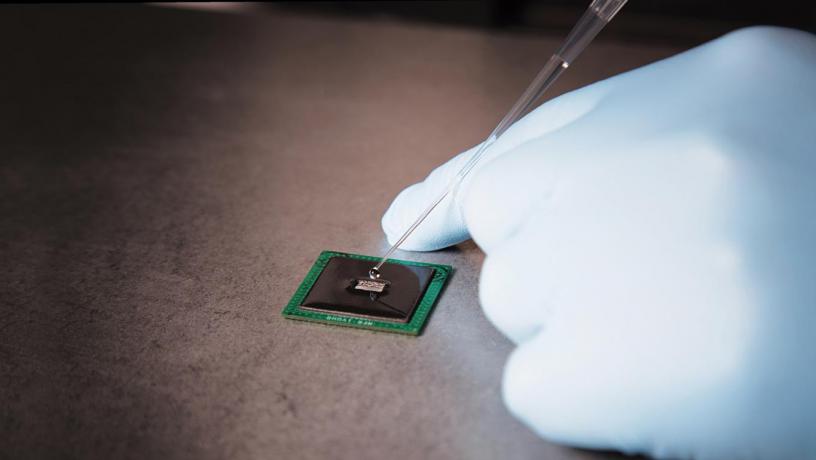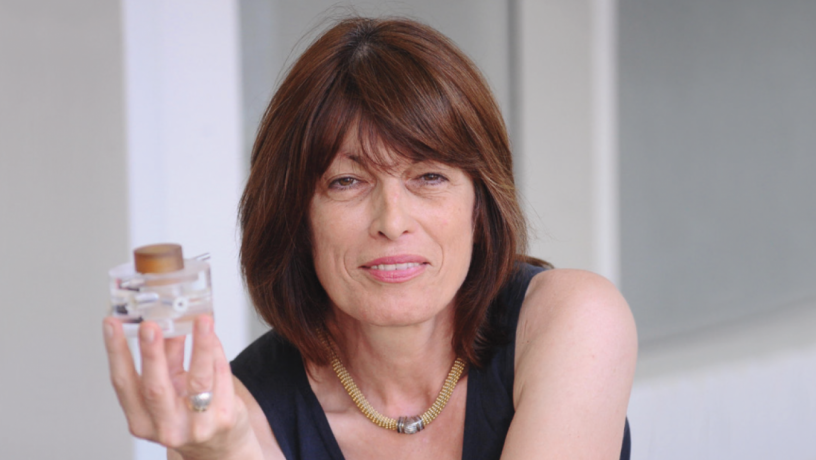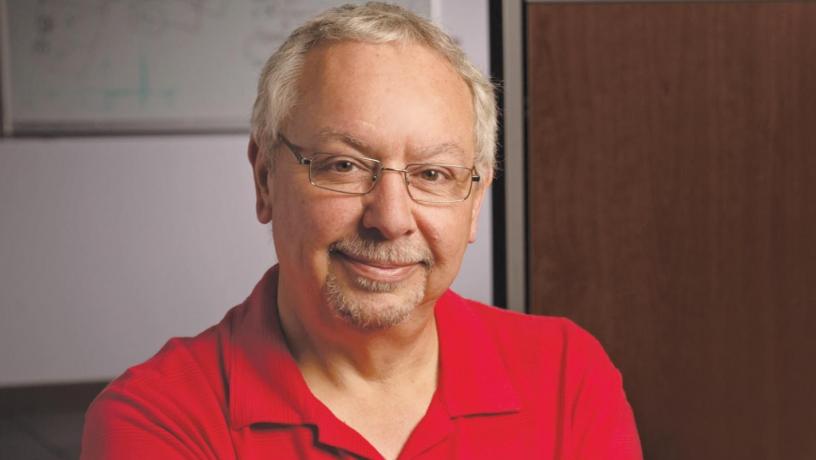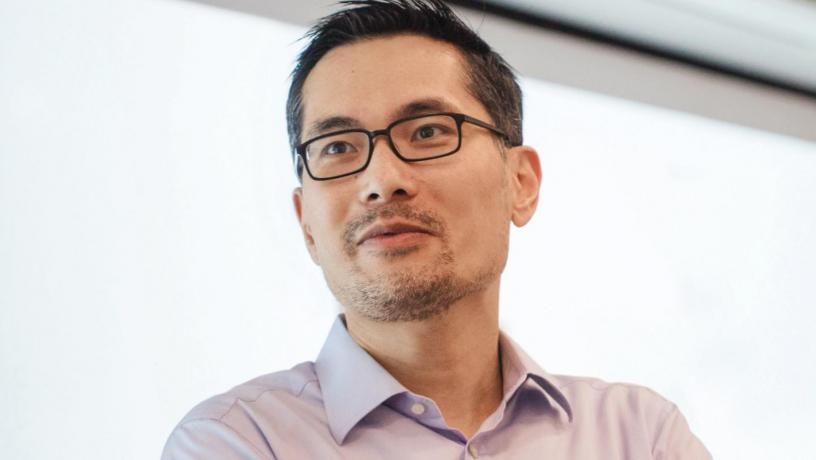From Lab to Market
A vibrant innovation culture and a strong startup network put Columbia entrepreneurs on the fast track.

Electronic biodetection arrays based on complementary metal-oxidesemiconductor integrated circuit chips, designed in Kenneth Shepard’s lab.
Innovations lucky enough to be born at Columbia Engineering often have only one way to go: up. Situated in the world’s second-largest startup market and supported by a dedicated tech transfer team and a network of five business accelerators, more Columbia Engineering faculty and students than ever are transferring their skills beyond the lab.
The timing couldn’t be better: New York City now outpaces Silicon Valley in venture capital growth, and a technology startup sector that began with a trickle a decade ago has become an ever-rising tide. Within this ecosystem, the Columbia Technology Ventures office (CTV) and Columbia Accelerator Network are on a mission to move groundbreaking technologies from lab to market through a wide range of initiatives.
CTV evaluates more than 350 faculty-submitted innovations each year, a process that may result in a patent, licensing agreement, or an invitation to join an accelerator—offering intensive programs that provide mentorship, entrepreneurship education, and access to validation and prototype funding across industries ranging from biotech and clean energy to media. Specialized efforts to accelerate research from individual schools—including the Columbia Engineering translational Fellows Program—extend the reach of startup support at Columbia. In total, Columbia Engineering has produced 24 startups over the past three and a half years, a new record.
Gordana Vunjak-Novakovic, University Professor, the Mikati Foundation Professor of Biomedical Engineering, and professor of medical sciences, has spun four companies out of her lab since 2008, a time when there was “zero biotech in New York,” and the city and many universities amped up efforts to build a startup economy. She credits a combination of University support and the work of top-notch students for her startup successes.
“Columbia stepped in and held our hands—everything from working with us to protect our IP, to introducing us to business development experts and teaching us how to talk to investors,” she said. Epibone, Vunjak-Novakovic’s first company, plans to start clinical trials of its core technology—a method for growing bone segments using patients’ own stem cells—this year, while Tara Biosystems, which builds chip-based models of cardiac tissue to identify cardiotoxicities in the drug development process, recently closed Series A financing. Two other early-stage companies, East River Biosystems and Immplacate, are progressing quickly, due largely to the skill and dedication of their leadership teams, which Vunjak-Novakovic emphasizes are an “all in the family” affair. “The companies are led by former students who spent years developing these technologies. It’s more than a job; it’s a personal investment,” she remarked.
Creating opportunities for students to participate in the intense but often rewarding commercialization process is one of the most valuable offerings Columbia provides, explained Kenneth Shepard, Lau Family Professor of Electrical Engineering and professor of biomedical engineering. Shepard, who started two companies in just five years—Ferric, which is commercializing on-chip voltage regulators to improve energy efficiency of digital devices, and Quicksilver Biosystems, founded to develop a new technology for molecular diagnostics based on electronic singlemolecule detection—believes the fast-growing number of Columbia faculty forming startups, and advising students who wish to do the same, drives the entrepreneurship culture on campus. “As students see more faculty starting companies, it feeds on itself and becomes something they want to be a part of,” Shepard said. “The best way to translate what we do in the lab into the real world is often to start a business, and these are incredible opportunities for students and postdocs.”
Incubators and accelerator programs are especially valuable for startups with University roots, providing workspace and crucial business education. Frustrated by the lack of affordable wet lab space in the city, Sam Sia, professor of biomedical engineering, founded the Harlem Biospace incubator, situating his own health care diagnostics company, Junco Labs, there, as well as hosting 40 other startups since 2013. Vidrovr, a startup hatched in the lab of Shih-Fu Chang, Columbia Engineering’s vice dean, joined Columbia’s media business accelerator, Combine. Since completing the program, which is designed to validate concepts and jump-start product development, Vidrovr has raised both government and private seed funding to commercialize a technology that helps publishers find online video content and automate the process of producing video-enriched web content. On making the jump from academia to conceiving a consumer product, Vidrovr cofounder Joseph Ellis commented, “As researchers you’re developing in the dark and solving problems you find interesting in an academic setting, but you have to talk to customers to understand what they really want.”
Salvatore Stolfo, professor of computer science and a veteran of multiple startups, agrees. Stolfo, whose company Red Balloon recently signed a licensing deal to integrate its cybersecurity technology into all HP printers, noted: “There’s a huge gulf between patent and product, and there are 150 reasons why companies fail—but only two or three reasons why they succeed. You need a leadership team who truly understands the marketplace, a strong network, and smart investors.” From Sia’s perspective, collaborations with industry and investors fuel innovation as well as business development. “There are a lot of cutting-edge research ideas at Columbia, but matching them with real-world problems and a sustainable business model doesn’t always happen spontaneously,” he said. “Opportunities to work with industry and investors help make the best use of the research and could feed back into making the research itself more innovative,” he remarked.
This growing roster of successes bolsters the spirit of entrepreneurship at Columbia, which Vunjak-Novakovic deems “infectious.”
“Some of the smartest young talent is here, and we can give them the chance to do great science and so much more,” she said.

Gordana Vunjak-Novakovic has spun four companies out of her lab since 2008.

Engineered bone in trichrome.

Salvatore Stolfo is a veteran of multiple startups, including the cybersecurity companies Allure and Red Balloon.

Sam Sia’s Harlem Biospace Incubator has hosted more than 40 startups since 2013.
